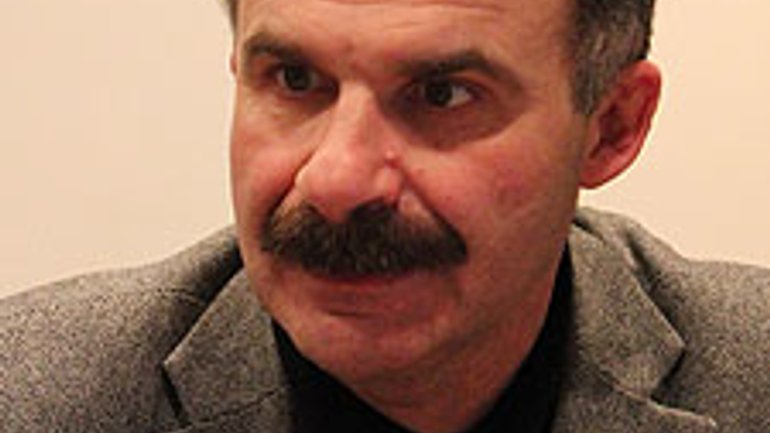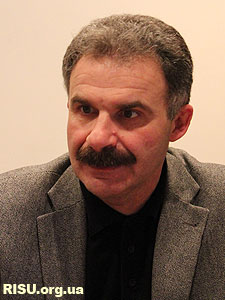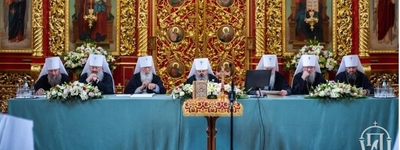March: The election and the role of personality in history

 We have no idea what the world will be like, but we do know it will be very different from today’s world. To understand just how different it will be, we must calculate the number of years until the newly enthroned patriarch reaches his seventy-fifth birthday and subtract it from the year 2011. And so we must look back thirty-four years to 1977.
We have no idea what the world will be like, but we do know it will be very different from today’s world. To understand just how different it will be, we must calculate the number of years until the newly enthroned patriarch reaches his seventy-fifth birthday and subtract it from the year 2011. And so we must look back thirty-four years to 1977.
In 1977 the Soviet Union prepares to celebrate the 60th anniversary of the October Revolution, China is entirely closed off from the world, dictators rule Latin American, in Teharan women wear miniskirts. Margaret Thatcher is not yet prime minister, Ronald Reagan not yet president, Deng Xiaoping not yet a leader. Karol Wojtyla is the archbishop of Krakow, Mikhail Gorbachev is the first party secretary of the Stavropol territory, Helmut Kohl is the opposition leader in the Bundesrat. Osama bin Laden teaches economics and management in the King Abdulaziz University, Lech Walesa is an electrician at a Gdansk shipyard, the future inventor of the World Wide Web Tim Berners-Lee works at his first job after graduating from Oxford.
Leonid Kravchuk is in the Central Committee of the Communist Party of Ukraine, Leonid Kuchma is at Yuzhmash, Viktor Yushchenko works at a local branch of the State Bank of the USSR, Viktor Yanukovych works as a director of a motor depot. And in the western region of a now defunct country Sviatoslav Shevchuk is about to sit at a school desk for the first time.
This is a world without Internet and cell phones, without the euro, al-Qaida, and Hezbollah, a world where the Yalta agreement seems intact and where progress in technology has reached its apogee. This world has not heard Pope John Paul II’s “Be not afraid!” message, Reagan’s Evil Empire Speech, the theocratic guidelines of Ruhollah Khomeini, nor Gorbachev’s “We can no longer live like this!” proclamation.
We do not know what the world would have become like without these people. But we know it would have had to have been different. And so the assertion that the church always remains the same no matter who is chosen is not entirely true.
What would have happened to the church had Pope John Paul II not awakened Poland and Chile, the Philippines and El Salvador with his pilgrimages? Had he not proven to be stronger than Pinochet, Trujillo, Marcos, Brezhnev, and Andropov? Undoubtedly, the church would have continued to save souls. But its message would have been different, and heard differently by millions, and this means, again, that the world would have been different. History does not have a detailed libretto; people make history with their interests, feelings, and ideas about good and evil.
The guests of the enthronement had something else on their minds as well: why did the bishops elect the person they did? Some may point to the influence of Patriarch Lubomyr; to the desire to have patriarch that could be accepted by both the bishops from Ukraine and the diaspora, for these bishops often have different opinions on the development of the church; to the mainstream trends and undercurrents in the episcopate and the Roman Curia… Others may talk about the enlightenment of the newly elected head, his theological maturity and dynamism.
But, in fact, far more interesting will be what people will say in ten, twenty, or thirty years about what prompted the Synod of Bishops to elect whom they did. After the October 1978 conclave, at which Cardinal Wojtyla became Pope John Paul II, Soviet propagandists talked about the trace of the CIA; conspirologists talked about the conspiracy against Roman wastrels of American and German “princes of the Church,” dissatisfaction with the deplorable state of Vatican finances; experts-Vaticanists talked about the inability of Italian cardinals to jointly nominate a candidate…
Ten years later these very experts will say that the choice was the only correct one, that no one else would have been able to bring down the Iron Curtain, give hope to millions, affirm human dignity, that none of the hierarchs they knew would have been able to stop Marxism from absorbing the Latin American church, warn of the military clash between Argentina and Chile, reconcile Dutch bishops with Rome, and return Poland to Europe. Only then did the world start to look for certain merits in a candidate, compelling the cardinals to elect the first Slavic pope in the history of the church: these merits being experience resisting Nazi and Communist totalitarianism; extremely insightful understanding of our present; strong personal charisma; unyielding, to the verge of obsession, dedication and impressive performance.
We cannot overlook the fact that the bishop’s choice resulted from weighing various expectations, convictions, and interests. But we must also not overlook the fact that they saw qualities in Bishop Sviatoslav that would help him tackle both near and distance future challenges. We do not know what exactly the Ukrainian hierarchs foresee for the future: global atheism or, conversely, planetary spiritual awakening; cataclysms that force people to leave Earth, or shocking scientific breakthroughs that are bigger than the invention of the wheel, the printing press, or nuclear energy. Or maybe they foresee problems that are less global but very worrisome for the church. But we do hope they foresaw something.
Furthermore, we do not know what exactly they looked for in Bishop Sviatoslav, what special gifts he has that will be needed in the future. Maybe it is only one gift, but one that determined their decision. But we want to believe that they found it.
This is how Metropolitan Andrey Sheptytsky, taking into consideration the future of the church, chose not a bishop but Father Mitrat Slipyj. Cardinal Myroslav Ivan Lubachivsky said in an interview that when the metropolitan was asked why Slipyj should be his successor, he said: “He will persevere.” Then Bishop Andrey realized that he indeed will be the head. And, as we know, he was right.










